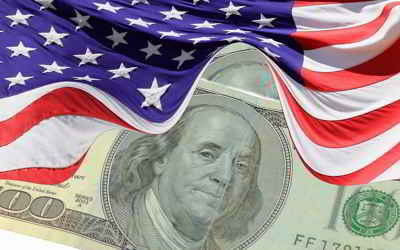Tennessee Economy
Agriculture and Industry in Tennessee
Tennessee economy is a set of human and social activities and institutions related to the production, distribution, exchange and consumption of agriculture and industry goods and services. The balance between Tennessee various economic sectors differs largely between various regions and other states in the US.Tennessee Agriculture and Industry
Tennessee's real gross state product in 2012 was estimated to be $240,523 which was $53,083 and 28% higher than the national state average, $187,440. Tennessee has the 18th highest GSP out of the 50 states.
The Civil War and Reconstruction left Tennessee struggling economically. However, by the early 1900s, Tennessee was growing again. Manufacturing and mining industries increased greatly, providing jobs for some of the unemployed. During the Great Depression (1929-1939) the economy dropped dramatically, closing factories and making thousands unemployed. In 1933, the Tennessee Valley Authority (TVA) was organized to conserve and develop natural resources. Many found jobs building dams on Tennessee rivers.
In 1941, the federal government built the Oak Ridge National Laboratories. This atomic energy plant helped to develop the atomic bomb that ended World War II (1939-1945). After the war, the TVA continued to build dam and steam plants throughout the state. This encouraged new industries into Tennessee from neighboring states. Tennessee's economy became one of the fastest growing economies in the South.
Although Tennessee is now primarily industrial, with most of its people residing in urban areas, many Tennesseans still derive their livelihood
from the land. The state's leading crops are cotton, soybeans, and tobacco; cattle, dairy products, and hogs are also principal farm commodities. Tennessee's
leading mineral is stone and zinc ranks second (Tennessee leads the nation in its production). The state's leading manufactures are chemicals and related
products, foods, electrical machinery, primary metals, automobiles, textiles and apparel, and stone, clay, and glass items. Aluminum production has
been important since World War I.
Tennessee is a major tourist destination because of its beautiful scenery. Many lakes were built by the Tennessee Valley Authority (TVA) and the Army
Corps of Engineers. The TVA also developed the Land Between the Lakes, an enormous Kentucky-Tennessee recreation area. Visitors are also drawn by Tennessee's
music capitals, Nashville for country-music lovers and Memphis for jazz. Elvis' home Graceland has become the most visited celebrity museum in the
country.
Tennessee Agriculture:
Soybeans, cotton, tobacco, livestock and livestock products, dairy products, cattle, hogs.
Tennessee Industry:
Chemicals, transportation equipment, rubber, plastics.
According to US Bureau of Economic Analysis, in 2003 Tennessee's Gross State Product was $199,786,000,000, 1.8% of the total Gross Domestic Product.
In 2003, the per capita personal income was $28,641, 36th in the nation, and only 91% of the national per capita personal income of $31,472. Total
earnings were $167,414,793,000. (BEARFACTS)
Major industries/products...
State sales tax is 7.0% (6% on nonprepared food), while the counties charge an additional 2.25% for a total of 9.25% across Tennessee. Some cities
charge additional 0.50% sales tax, leading to a total of 9.75%: some of the highest sales taxes in the United States. The overall state tax rate is
relatively low, however, as Tennessee does not tax wage and salary income (although it does tax unearned income).

US economy is relies on private decision-making ("economic freedom")




